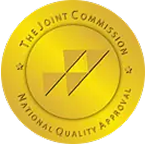The New Year and Setting Goals
It may sound like a cliché, but a new year really does bring the opportunity to start fresh, become healthier and change our lives. As with any major decision concerning our health or wellness, it often takes a tipping point to begin that change. Even though January 1 has the same 24 hours as any other day, it represents a turning point both in the calendar and psychologically as well.
Setting goals for 2015 is not as straightforward as it may seem. In fact setting goals requires planning, thought and a great deal of introspection. This is because setting unachievable goals, or setting goals that are very lofty and overly broad, can end in frustration. Following are a few tips on setting your goals for this New Year:
Set attainable goals. It may seem obvious, but setting attainable goals is not as easy as you think. When we want to change our lives, we often think in grand terms. However, unrealistic goals can sink us. While the goal itself may be very worthy, we also need to ensure that it makes sense for us at this point in our lives. Setting broad and lofty goals – like losing 100 pounds or a round the world trip can often lead to frustration if we don’t ultimately achieve it.
Set interim goals. It is absolutely fine to want to achieve a larger, achievable goals. However, there are different ways of getting there. The best is to walk before we run, setting interim goals that allow us to celebrate the victory and refocus on the next task at hand. So using the examples from above, if we need to lose 100 pounds, we may decide that losing 7 pounds a month is a good interim goal. Eventually we will reach that hundred pound mark, but we can celebrate each 7 pound interval in the meantime. Similarly, an around the world trip may not be financially viable, so resolving to save $500 or even $100 a month towards the trip is a great goal. That allows us to see our incremental progress.
Take a new approach. Our goals don’t always have to be so common. Think outside the box – about goals that can achieve a similar end and still shows us the progress we need to stay motivated. The purpose is to enjoy the entire process, not just the pay-off.
As you read this, you may ask how this affects recovery from drugs or alcohol. We all know that our minds and bodies contribute, in large part, to our ability to recover from the disease of addiction. One of the most difficult impulses to control, especially in these times, is stress. Wanting a lot but not achieving it can cause a great deal of stress and strain within ourselves and in our relationships. The resultant frustrations and annoyances can compound and ultimately cause feelings of low self-esteem and hopelessness. These feelings make it much more likely to relapse, but we help can prevent it by setting proper goals in our lives.
We wish you a healthy and happy 2015. We hope you achieve the goals you’ve set.






